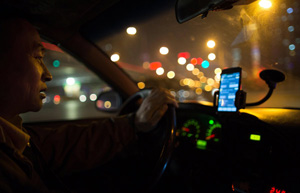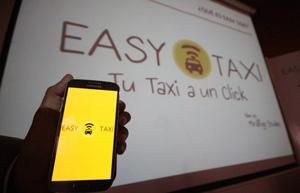"After the policy came out, government institutions realized that leasing cars or renting car services from professional companies is a cheaper way of obtaining cars," Hu says.
Under the new car rules, current government cars will be sold by auction by the end of next year, and Hu reckons car rental companies will buy many of them.
"We can use these cars to serve government customers. By doing this, they save on petrol and maintenance, which makes up 80 to 90 percent of the costs of keeping a government fleet."
There are two kinds of cars for public servants and state-companies to choose from: economy models and premium models.
The economy models, such as a Sagitar and Lavida, both Volkswagens, are worth 100,000 yuan to 150,000 yuan, while the premium models, such as a Buick GL8, cost between 150,000 yuan and 230,000 yuan.
Chinese officials traditionally travel in cars that match their rank, Hu says.
"If the boss of a state company travels in an Audi A6, usually the subordinates choose cheaper cars, even if there is enough money around for something that is more expensive. Traveling in the wrong car can result in embarrassment. That's why we offer a choice of chauffeurs and cars."
The rule changes may trigger a new round of competition between the car rental companies, industry analysts say.
The China Car-Rental Association says there were more than 1,000 car rental companies in China last year, and the top five companies combined had less than 10 percent of the total market share.
"Government institutions prefer large-scale, well-managed rental companies for their daily business, which in turn will give these companies a higher profile," Cai says. "This will further reduce small rental companies' room for maneuver."
|
 |
 |
| Taxi-calling apps halt cash subsidies | China's Wechat, Easy Taxi launch taxi-hail app in Singapore |
